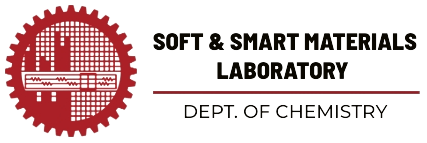Apply nanotech to up industrial, agri output.
Participants at a roundtable on nanotechnology and its prospects in Bangladesh organised by The Daily Star at The Daily Star Centre in the capital yesterday.Photo: STAR
Application of nanotechnology would enhance industrial and agricultural production at low-cost for the future development of Bangladesh, said noted scientists at a roundtable yesterday.
It can bring tremendous growth in industrial and agricultural production and help making low-cost solar energy generation, environment conservations, construction sector, precise cancer treatment, medical diagnosis, space travel and defence technology, they said.
The Daily Star organised the discussion on nanotechnology and its prospects in Bangladesh at The Daily Star Centre in the capital.
Nanotechnology (nanotech) is a technology to break a matter down to the smallest size of particles to increase its efficiency tremendously, said Prof M Afzal Hossain, vice-chancellor of Hajee Mohammad Danesh Science & Technology University. A nanometer is billionth of a metre and comparable to a marble vis-a-vis the size of the globe.
It is smarter, faster, cleaner and cheaper that helps enhance industrial production at a low cost, said Prof Ahmad Ismail Mustafa, chairman of Bangladesh Council of Scientific and Industrial Research (BCSIR).
An estimated 70 percent of the total fertiliser used in the country\’s agriculture is wasted due to inefficent absorption causing waste of money and environmental pollution, he said. But application of nanotech in fertiliser production can ensure a drastic reduction in fertiliser use thus reducing unnecessary chemical input in the land.
He said BCSIR is close to successful production of nanotech fertiliser, low-cost solar energy and waste water treatment.
Prof Lutful Hassan of Bangladesh Agricultural University said precise application of fertiliser can reduce its use and use of insecticide at a minimum level with nanotech will help save environment from pollution.
Dr Mobarak Ahmad Khan, director of Bangladesh Atomic Energy Commission, said they would be able to produce nanotech solar energy by June this year.
Bangladesh as a small country with a huge population can cash in on the nanotech in agriculture, medical science, energy and water purification, said Prof Shamima K Choudhury of Dhaka University.
It may provide solutions to meet demand of safe water, energy, healthcare and food products with less labour and limited land at low-cost, said Al-Nakib Chowdhury, a chemistry professor of Bangladesh University of Engineering and Technology (Buet), in his keynote presentation.
Nanotech is helpful for precise treatment of cancer and brain disorder, production of more effective cosmetics, energy systems and information technology, he said.
Low-cost nano-silica can replace the conventional expensive fuel cell of solar panel; nano-particles can enhance food production while nano-medicine is precise, strong and many times more effective. Nanotech textile products are water and dust-proof, he said.
It makes products light and strong. Nano-filter protects environment against toxic contamination. It is going to bring about a new industrial revolution and create ten million jobs in manufacturing sector in the world by 2014, said Nakib.
Prof Zahid Hasan Mahmood of Dhaka University said they pursue some courses on nanotech at graduate and post-graduate levels at the university.
He underscored the need for a national nanotech centre, a laboratory and a national forum of nano-scientists to advance researches on the areas of nanotech.
Prof Tajmeri SA Islam of Dhaka University said coordination among the nano-scientists and a friendly relationship between the scientists and industries are vital.
Prof Haseena Khan of Dhaka University said adequate financial incentive for research in the area of nano-science is imperative.
Bureaucrats due to their mindset often refuse to disburse the money allocated for research in the areas of science and technology, said Prof Muhibur Rahman, member of University Grants Commission.
Efficient management of toxic wastes by nanotech is critical to contain its possible hazards, said Prof Syed Md Akram Hossain, an oncologist at Lab Aid Specialised Hospital.
Laboratory work on nanotech must be connected with laymen\’s welfare, said AAMS Arefin Siddique, vice-chancellor of Dhaka University, who moderated the discussion.
Mahfuz Anam, editor and publisher of The Daily Star, said the newspaper would dedicate an entire page every month to advance the issue of nanotech and remain with the efforts to launch a platform of nano-scientists.
Other discussants at the roundtable are: Dr AKM Asaduzzaman, additional secretary to the science and technology ministry, Prof Md Anwar Hossain of Dhaka University, Prof Imamul Huq of Dhaka University, Md Golam Rahman, chairman of Bangladesh Chemical Industries Corporation (BCIC), Manzoor Ahmad Tarafdar, director of BCIC, Dr Mahbubur Rahman of ICDDR,B, Mahbubul Karim, director of Incepta Pharmaceuticals, Prof M Kaykobad of Buet, Dr Abu Jafar Mahmood, supernumury professor of Dhaka University, Dr Farseem Mannan of Buet, Dr Dilip Kumar Saha, chief scientific officer of Bangladesh Atomic Energy Commission, Prof M Yousuf A Mollah of Dhaka University, Dr Md Abu Bin Hasan Susan of Dhaka University, Dr Md Mominul Islam of Dhaka University, Prof Tofazzal Islam of Bangabandhu Sheikh Mujibur Rahman Agricultural University, Prof Rafiqul Islam of Dhaka University, Prof Qazi Azizul Mowla of Buet, Dr Md Abul Kashem of Bangladesh Agricultural Research Council, Dr Mohammed Mizanur Rahman of Dhaka University, Dr Abu Bin Imran of Buet, Dr Shakhawat H Firoz of Buet, Dr Tanvir Manzur of Buet, Prof Raqib Ahsan of Buet, Md Riajul Hossain, lecturer of Dhaka University and ABM Khorshed Alom, additional secretary to the industries ministry.
The USA has invested 3.7 billion dollars through its National Nanotechnology Institute followed by Japan with 750 million and the European Union 1.2 billion.
India introduced the technology four decades back in telecom, computing, aerospace and solar energy. While Malaysia launched strategic research on it in 2001, Thailand founded national nanotech centre two year later.
